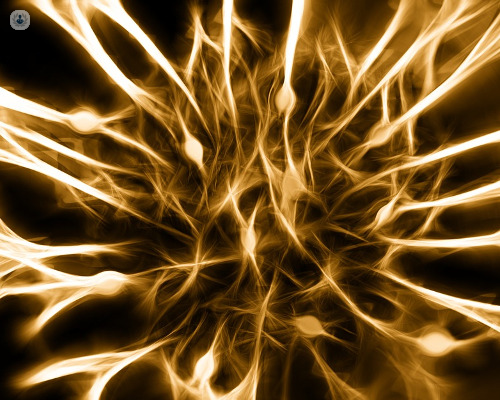All about Parkinson's disease
Escrito por:Parkinson's disease is a chronic and progressive neurological disorder that primarily affects movement. It occurs when certain nerve cells in the brain, specifically in the substantia nigra, start to malfunction or die.
These cells are responsible for producing dopamine, a neurotransmitter crucial for smooth and coordinated muscle movements. As dopamine levels decrease, individuals with Parkinson's experience increasing difficulty in controlling their movements. Here to explain more is revered consultant neurologist, Dr Omar Salim.

Symptoms and progression
The symptoms of Parkinson's disease typically develop gradually and can vary widely from person to person. The most common motor symptoms include tremors, stiffness, slowness of movement (bradykinesia), and impaired balance and coordination.
These symptoms often start on one side of the body and eventually affect both sides. Non-motor symptoms, such as cognitive changes, mood disorders, sleep disturbances, and autonomic dysfunction, can also occur and may sometimes precede motor symptoms.
As Parkinson's disease progresses, symptoms worsen, and daily activities become more challenging. The rate of progression varies, with some individuals experiencing a more rapid decline, while others maintain functional independence for many years. Advanced stages of Parkinson's may result in significant disability, with patients requiring assistance with daily tasks.
Causes and risk factors
The exact cause of Parkinson's disease remains unknown, but a combination of genetic and environmental factors is believed to contribute to its development. Some cases are linked to specific genetic mutations, while others may result from exposure to toxins, head injuries, or a combination of factors. Age is the most significant risk factor, with most cases occurring in individuals over 60. Men are slightly more likely to develop Parkinson's than women.
Treatment and management
While there is currently no cure for Parkinson's disease, treatments are available to manage symptoms and improve quality of life. Medications, such as levodopa, can help replenish dopamine levels and alleviate motor symptoms. Physical therapy, occupational therapy, and speech therapy can also aid in managing symptoms. In advanced cases, surgical options like deep brain stimulation (DBS) may be considered.
Ongoing research aims to better understand the underlying mechanisms of Parkinson's disease and develop new treatments. Early diagnosis and a multidisciplinary approach to care are crucial in managing the disease effectively and enhancing the quality of life for those affected.


